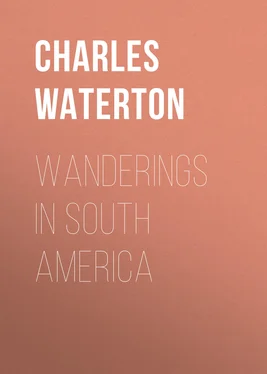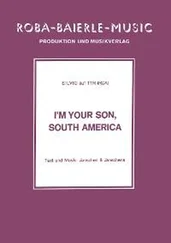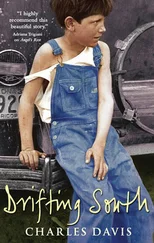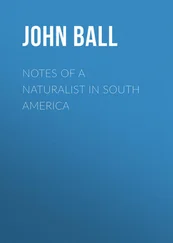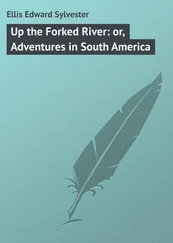Charles Waterton - Wanderings in South America
Здесь есть возможность читать онлайн «Charles Waterton - Wanderings in South America» — ознакомительный отрывок электронной книги совершенно бесплатно, а после прочтения отрывка купить полную версию. В некоторых случаях можно слушать аудио, скачать через торрент в формате fb2 и присутствует краткое содержание. Жанр: Путешествия и география, История, foreign_edu, foreign_antique, foreign_prose, на английском языке. Описание произведения, (предисловие) а так же отзывы посетителей доступны на портале библиотеки ЛибКат.
- Название:Wanderings in South America
- Автор:
- Жанр:
- Год:неизвестен
- ISBN:нет данных
- Рейтинг книги:5 / 5. Голосов: 1
-
Избранное:Добавить в избранное
- Отзывы:
-
Ваша оценка:
- 100
- 1
- 2
- 3
- 4
- 5
Wanderings in South America: краткое содержание, описание и аннотация
Предлагаем к чтению аннотацию, описание, краткое содержание или предисловие (зависит от того, что написал сам автор книги «Wanderings in South America»). Если вы не нашли необходимую информацию о книге — напишите в комментариях, мы постараемся отыскать её.
Wanderings in South America — читать онлайн ознакомительный отрывок
Ниже представлен текст книги, разбитый по страницам. Система сохранения места последней прочитанной страницы, позволяет с удобством читать онлайн бесплатно книгу «Wanderings in South America», без необходимости каждый раз заново искать на чём Вы остановились. Поставьте закладку, и сможете в любой момент перейти на страницу, на которой закончили чтение.
Интервал:
Закладка:
‘Delphini insidens vada cærula sulcat Arion.’
“The people now dragged us about forty yards on the sand; it was the first and last time I was ever on a cayman’s back. Should it be asked, how I managed to keep my seat, I would answer—I hunted some years with Lord Darlington’s fox-hounds.
“After repeated attempts to regain his liberty, the cayman gave in, and became tranquil through exhaustion. I now managed to do up his jaws, and firmly secured his fore-feet in the position I had held them. We had now another severe struggle for superiority, but he was soon overcome, and again remained quiet. While some of the people were pressing upon his head and shoulders, I threw myself on his tail, and by keeping it down to the sand, prevented him from kicking up another dust. He was finally conveyed to the canoe, and then to the place where we had suspended our hammocks. There I cut his throat; and after breakfast was over, commenced the dissection.”
After his fourth journey Waterton occasionally travelled on the Continent, but for the most part resided at Walton Hall. In the park he made the observations afterwards published as “Essays on Natural History,” in three series, and since reprinted, with his Life and Letters, by Messrs. Warne and Co.
Walton Hall is situated on an island surrounded by its ancient moat, a lake of about five-and-twenty acres in extent. From the shores of the lake the land rises; parts of the slope, and nearly all the highest part, being covered with wood.
In one wood there was a large heronry, in another a rookery. Several hollow trees were haunted by owls, in the summer goat-suckers were always to be seen in the evening flying about two oaks on the hill. At one end of the lake in summer the kingfisher might be watched fishing, and throughout the year herons waded round its shores picking up fresh-water mussels, or stood motionless for hours, watching for fish. In winter, when the lake was frozen, three or four hundred wild duck, with teal and pochards, rested on it all day, and flew away at night to feed; while widgeons fed by day on its shores. Coots and water-hens used to come close to the windows and pick up food put out for them. The Squire built a wall nine feet high all round his park, and he used laughingly to say that he paid for it with the cost of the wine which he did not drink after dinner.
A more delightful home for a naturalist could not have been. No shot was ever fired within the park wall, and every year more birds came. Waterton used often to quote the lines:—
“No bird that haunts my valley free
To slaughter I condemn;
Taught by the Power that pities me,
I learn to pity them;”
and each new-comer added to his happiness. In his latter days the household usually consisted of the Squire, as he was always called, and of his two sisters-in-law, for he had lost his wife soon after his marriage in 1829. He breakfasted at eight, dined in the middle of the day, and drank tea in the evening. He went to bed early, and slept upon the bare floor, with a block of wood for his pillow. He rose for the day at half-past three, and spent the hour from four to five at prayer in his chapel. He then read every morning a chapter in a Spanish Life of St. Francis Xavier, followed by a chapter of “Don Quixote” in the original, after which he used to stuff birds or write letters till breakfast. Most of the day he spent in the open air, and when the weather was cold would light a fire of sticks and warm himself by it. So active did he continue to the end of his days, that on his eightieth birthday he climbed an oak in my company. He was very kind to the poor, and threw open a beautiful part of his park to excursionists all through the summer. He had a very tender heart for beasts and birds, as well as for men. If a cat looked hungry he would see that she had a meal, and sometimes when he had forgotten to put a crust of bread in his pocket before starting on his afternoon walk, he would say to his companion, “How shall we ever get past that goose?” for there was a goose which used to wait for him in the evening at the end of the bridge over the moat, and he could not bear to disappoint it. If he could not find a bit of food for it, he would wait at a distance till the bird went away, rather than give it nothing when it raised its bill.
Towards the end of his life I enjoyed his friendship, and can never forget his kindly welcome, his pithy conversation, the happy humour with which he expressed the conclusions of his long experience of men, birds and beasts, and the goodness which shone from his face. I was staying at Walton when he died, and have thus described his last hours in the biography which is prefixed to the latest edition of his Essays. 2 2 “Natural History Essays,” by Charles Waterton, edited, with a life of the author, by Norman Moore (Warne and Co.).
I was reading for an examination, and used, on the Squire’s invitation, to go and chat with him just after midnight, for at that hour be always awoke, and paid a short visit to his chapel. A little before midnight on May 24th I visited him in his room. He was sitting asleep by his fire wrapped up in a large Italian cloak.
His head rested upon his wooden pillow, which was placed on a table, and his thick silvery hair formed a beautiful contrast with the dark colour of the oak. He soon woke up, and withdrew to the chapel, and on his return we talked together for three-quarters of an hour about the brown owl, the nightjar, and other birds. The next morning, May 25, he was unusually cheerful, and said to me, “That was a very pleasant little confab we had last night: I do not suppose there was such another going on in England at the same time.” After breakfast we went with a carpenter to finish some bridges at the far end of the park. The work was completed, and we were proceeding homewards when, in crossing a small bridge, a bramble caught the Squire’s foot, and he fell heavily upon a log. He was greatly shaken, and said he thought he was dying. He walked, notwithstanding, a little way, and was then compelled to lie down. He would not permit his sufferings to distract his mind, and he pointed out to the carpenter some trees which were to be felled. He presently continued his route, and managed to reach the spot where the boat was moored. Hitherto he had refused all assistance, but he could not step from the bank into the boat, and he said, “I am afraid I must ask you to help me in.” He walked from the landing-place into the house, changed his clothes, and came and sat in the large room below. The pain increasing, he rose from his seat after he had seen his doctor, and though he had been bent double with anguish, he persisted in walking up-stairs without help, and would have gone to his own room in the top storey, if, for the sake of saving trouble to others, he had not been induced to stop half-way in Miss Edmonstone’s sitting-room. Here he lay down upon the sofa, and was attended by his sisters-in-law. The pain abated, and the next day he seemed better. In the afternoon he talked to me a good deal, chiefly about natural history. But he was well aware of his perilous condition, for he remarked to me, “This is a bad business,” and later on he felt his pulse often, and said, “It is a bad case.” He was more than self-possessed. A benignant cheerfulness beamed from his mind, and in the fits of pain he frequently looked up with a gentle smile, and made some little joke. Towards midnight he grew worse. The priest, the Reverend R. Browne, was summoned, and Waterton got ready to die. He pulled himself upright without help, sat in the middle of the sofa, and gave his blessing in turn to his grandson, Charlie, to his granddaughter, Mary, to each of his sisters-in-law, to his niece, and to myself, and left a message for his son, who was hastening back from Rome. He then received the last sacraments, repeated all the responses, Saint Bernard’s hymn in English, and the first two verses of the Dies Iræ . The end was now at hand, and he died at twenty-seven minutes past two in the morning of May 27, 1865. The window was open. The sky was beginning to grow grey, a few rooks had cawed, the swallows were twittering, the landrail was craking from the Ox-close, and a favourite cock, which he used to call his morning gun, leaped out from some hollies, and gave his accustomed crow. The ear of his master was deaf to the call. He had obeyed a sublimer summons, and had woke up to the glories of the eternal world.
Читать дальшеИнтервал:
Закладка:
Похожие книги на «Wanderings in South America»
Представляем Вашему вниманию похожие книги на «Wanderings in South America» списком для выбора. Мы отобрали схожую по названию и смыслу литературу в надежде предоставить читателям больше вариантов отыскать новые, интересные, ещё непрочитанные произведения.
Обсуждение, отзывы о книге «Wanderings in South America» и просто собственные мнения читателей. Оставьте ваши комментарии, напишите, что Вы думаете о произведении, его смысле или главных героях. Укажите что конкретно понравилось, а что нет, и почему Вы так считаете.
